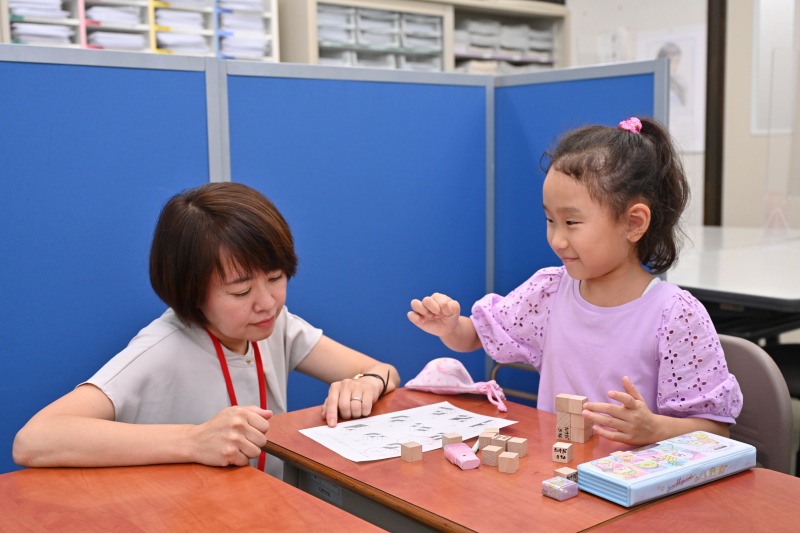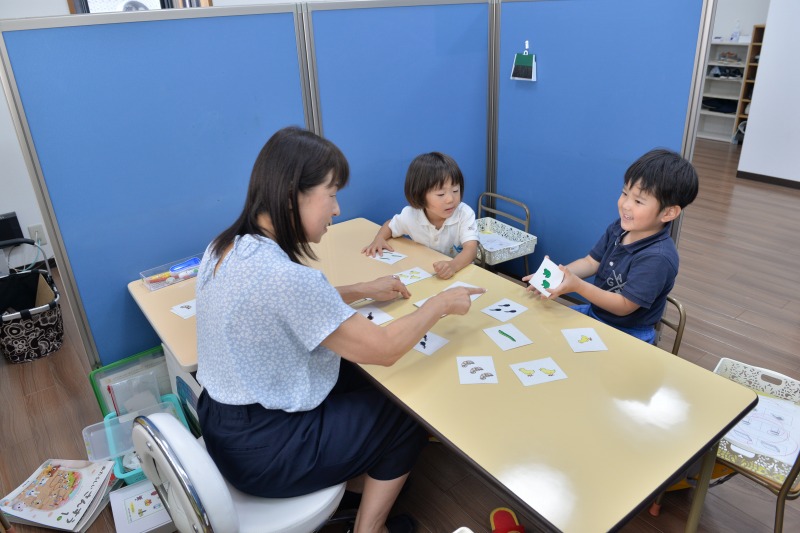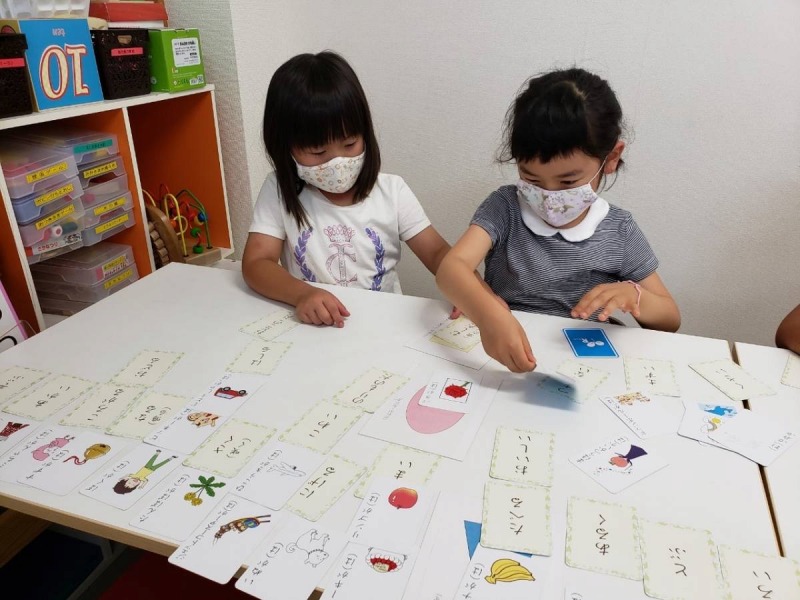Saturday School
Class programs open to those outside of CGK.
CGK offers Saturday School which is open to both students of CGK and students of other schools.
Please contact Manten Kids (まんてんキッズ) in Japanese directly, not CGK, for details on lesson content and enrollment procedures.
Location
CGK International School - Kannai Campus
2-25-2 Minaminakadori, Naka-ku, Yokohama, Kanagawa
Manten Kids (まんてんキッズ)
Nurturing "The Ability to Think Logically" Through Two Approaches: Pygmalion (Math) and Ronri Engine (Japanese).
The ability to think is essential to a fulfilling life. The ability to think is also the basis of all study.
Have you ever had this problem? You don't have time to wait for your child to figure something out for themselves, so you just tell them the answer. Then you notice, they are just memorizing answers. This could be a problem. Children will not develop the ability to think for themselves just by being told something. They grow when they have to think by themselves. At Manten Kids, we support children's education by providing original teaching tools that children find exciting and interesting. We also use a variety of printouts that encourage them to try new things for themselves.
Have you ever had a situation like this? You find yourself forcing your child to just practice by rote reading, writing, and calculating. It's not fun, is it?
Especially with numbers, if children are taught only counting and repetitive calculations, they may be able to calculate small sums, but when it comes to large numbers and complex problems, they won't have the ability to work them out.
Please contact Manten Kids (まんてんキッズ) in Japanese directly for details including enrollment.





Pygmalion (in Japanese) - Age 2 to Elementary Students
At Pygmalion, children learn number concepts (math) through a variety of teaching materials, teaching tools, and fun games that give them a sense of quantity.
During each lesson, the five learning skills are stimulated in a well-balanced way.
- (1) Finger Dexterity: A vital skill that influences all other abilities. It fosters the development of independence.
- (2) Spatial Ability: It cultivates an understanding of space, position, structure, helps to develop a broader perspective and improve decision-making skills.
- (3) Shape Ability: The secret to nurturing thinking and creativity lie within the rich world of shape play.
- (4) Numerical-Logical Ability: It's not just about counting numbers, but also about fostering creativity, feeling quantities visually, and grasping the concept of numbers. Problem-solving abilities are nurtured.
- (5) Language Ability: Develops living language skills not just as written characters but as tools for thought and communication.
Actively thinking, solving, and creating on one's own leads to the ability to tackle subsequent challenges. Indeed, cultivating this sought-after strength is the education that Pygmalion aims to provide.
There are two courses available at Pygmalion:
(1) Super Pygmalion (Age 2 to Grade 3)
- One-on-one personalized instruction
- Custom-made curriculum tailored to the child's personality
- Parents can attend to learn teaching methods for use at home
- Children master four-digit addition and subtraction before starting school, making this the most accelerated course
- Uses all of Pygmalion's teaching materials (about 40 sheets per hour)
(2) Pygmalion Petit α (Age 3 to Grade 4)
- Group lessons with up to 3 students per class (no parents in attendance)
- Adapted Super Pygmalion content for group sessions (about 10 printouts per hour)
- A comprehensive curriculum that can be reliably covered in a group
- Offered at an affordable price






Ronri Engine (in Japanese) - Elementary Students
The Ronri Engine (論理エンジン) nurtures logical thinking through an approach based on the Japanese language. Reading comprehension is necessary for any subject, in any era, and in any profession.
Perceptions:
- The Japanese language is just about having a feel for it, so studying or not studying makes no difference.
- Even without studying, one can score decently in Japanese.
- Japanese language studies are merely about learning kanji and reading aloud.
- The only way I can think of studying Japanese is through reading.
- After all, it's just Japanese, so there's no need to study.
Current State:
- Lack of logical and thinking skills.
- Lack of reading comprehension.
- Lack of vocabulary.
- Lack of expression.
- Lack of awareness of others.
- Unfamiliar with correct grammar.
Can these be ignored?
In the Ronri Engine Japanese course, we ensure mastery by balancing language, logic, thinking, expression, and grammar, adopting a small-step, spiral approach.
With logical reading comprehension, you can objectively interpret word problems.
With logical thinking skills, you can write accurate sentences in descriptive problems and compositions.
With logical expression skills, you can convey your points clearly to others.
There are four pillars to enhance logical reading comprehension and descriptive abilities:
- (1) Equivalence Relationship: A creative combination enhances the persuasiveness of an argument.
- (2) Contrasting Relationship: A stark contrast enhances the impact of an assertion.
- (3) Cause-and-Effect Relationship: The core logic of a new era (showing the relation between cause and result).
- (4) Relationship of Subject, Predicate, and Object: Captures the essence of a sentence.


















